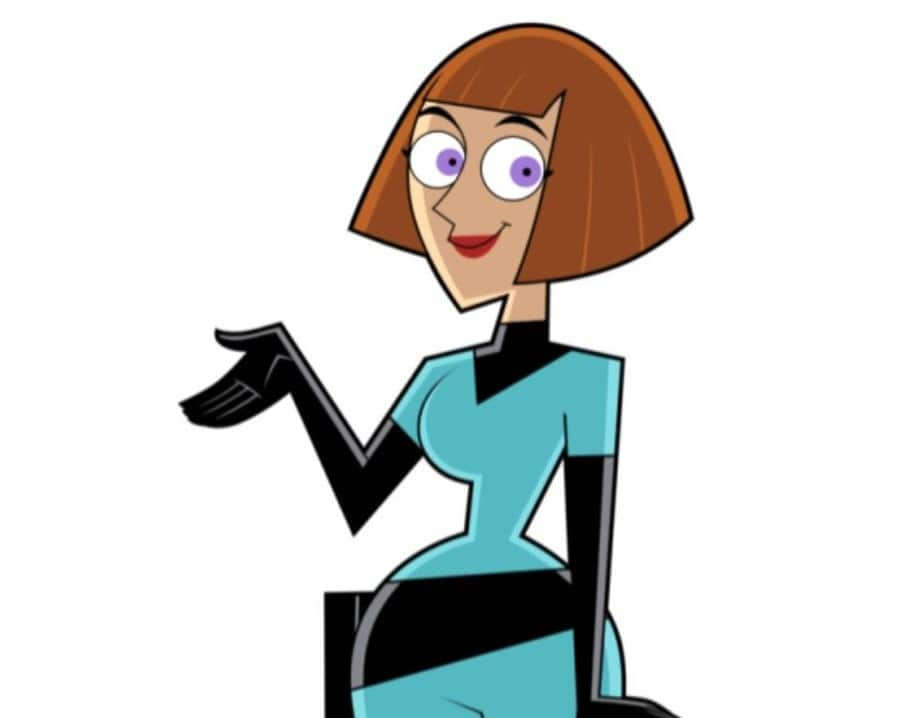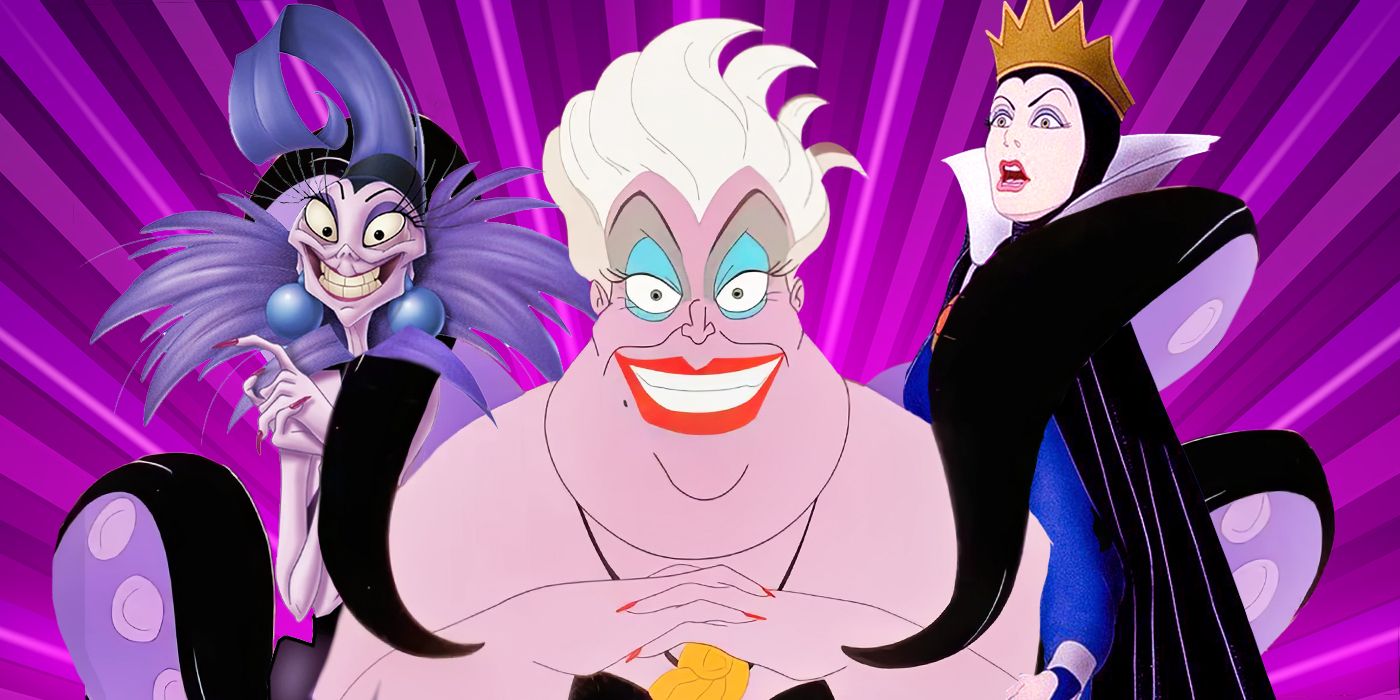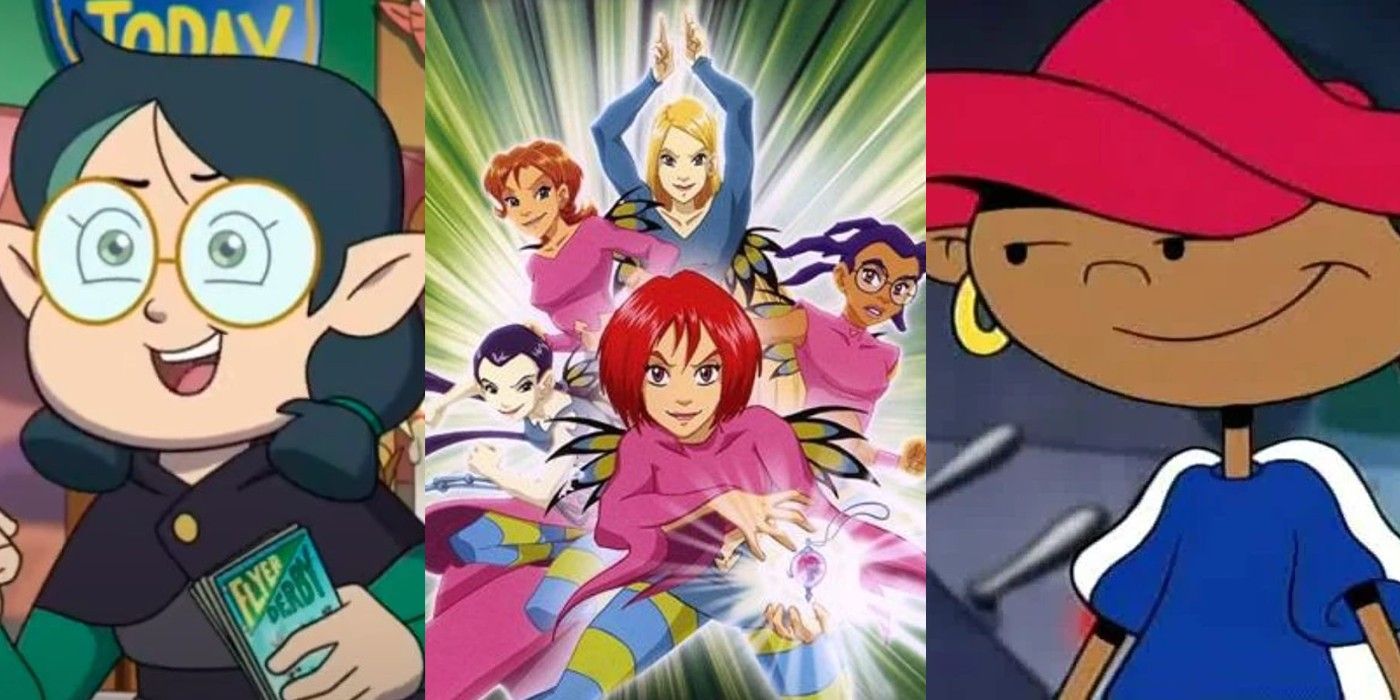Alright folks, gather 'round because we're diving deep into the vibrant universe of female cartoon characters and trust me, this is going to be a wild ride. If you're a fan of animated shows, movies, or even just scrolling through streaming platforms, you've likely come across some iconic women who've captured our hearts. From the sassy and spunky to the powerful and intelligent, these characters have left an indelible mark on pop culture and beyond. So, why are we talking about them? Because they're more than just pixels on a screen—they're symbols of empowerment, diversity, and representation.
Now, let's get real for a second. Female cartoon characters aren't just here to entertain us; they're here to challenge stereotypes, break barriers, and inspire generations. Think about it—when you were a kid, who was your favorite cartoon character? Chances are, if it was a female, she probably had some serious game. Whether it's their wit, strength, or sheer determination, these characters have become role models for millions of young viewers around the globe. And that's what we're here to explore today.
But before we dive headfirst into this colorful world, let's set the stage. This article isn't just about listing your favorite cartoon ladies—it's about understanding their impact, their evolution, and why they matter so much in today's media landscape. So buckle up, grab your snacks, and let's take a trip down memory lane while uncovering some fresh insights along the way. Let's roll!
Read also:What Does Nfs Mean In Text A Deep Dive Into The World Of Modern Messaging
Table of Contents
- The History of Female Cartoon Characters
- Biography of Iconic Female Cartoon Characters
- Evolution in Representation
- Impact on Pop Culture
- Diversity and Inclusion
- Power and Strength
- Intelligence and Wit
- Relationships and Dynamics
- Modern Female Cartoon Characters
- The Future of Female Cartoon Characters
The History of Female Cartoon Characters
Let's rewind the clock and take a peek at where it all began. Female cartoon characters have been around since the early days of animation, but their roles and portrayals have drastically changed over the years. Back in the day, women in cartoons were often depicted as damsels in distress or love interests, but thank goodness times have changed. Today, we see complex, multidimensional characters who defy traditional gender roles and bring fresh perspectives to the screen.
Some of the earliest female cartoon characters, like Betty Boop and Minnie Mouse, paved the way for future generations. They might not have been perfect, but they laid the foundation for what was to come. As animation evolved, so did the characters, and by the late 20th century, we started seeing more diverse and empowered women taking center stage.
Early Beginnings and Milestones
Here are some key milestones in the history of female cartoon characters:
- 1930s: Betty Boop becomes one of the first iconic female cartoon characters.
- 1950s: Hanna-Barbera introduces characters like Jane Jetson, who represents the modern housewife.
- 1990s: The Powerpuff Girls revolutionizes the portrayal of young female superheroes.
Biography of Iconic Female Cartoon Characters
Alright, let's zoom in on some of the most iconic female cartoon characters and learn a little more about them. From their origins to their personalities, these ladies have stories worth telling. Below is a quick rundown of a few legends:
| Name | Show | Role | Notable Traits |
|---|---|---|---|
| Benderella | Futurama | Robot Love Interest | Witty, sarcastic, and tech-savvy |
| Benderina | Futurama | Robot Sidekick | Brave, loyal, and resourceful |
| Benderella | Futurama | Robot Love Interest | Witty, sarcastic, and tech-savvy |
Who Are These Ladies, Really?
Each character brings something unique to the table, whether it's their humor, intelligence, or sheer badassery. For instance, Benderella from Futurama isn't just any robot; she's got a personality that makes her stand out in a crowd of futuristic characters. Her wit and tech-savviness make her a fan favorite, and her relationships with other characters add layers to her story.
Evolution in Representation
Over the years, the representation of female cartoon characters has evolved significantly. Gone are the days when women were only seen as love interests or sidekicks. Now, we see female characters leading their own shows, making important decisions, and influencing the world around them. This shift is crucial because it reflects the changing attitudes towards women in real life.
Read also:Good Evening Message For Her Brighten Her Night With Sweet Words
Take, for example, shows like Adventure Time and Steven Universe. These series feature strong, independent female characters who tackle challenges head-on and inspire their audiences to do the same. It's not just about being tough; it's about being authentic and relatable.
Breaking Stereotypes
Here are some ways female cartoon characters are breaking stereotypes:
- Showing emotional depth without being overly dramatic.
- Portraying leadership roles without compromising femininity.
- Challenging traditional beauty standards and embracing diversity.
Impact on Pop Culture
Female cartoon characters have had a massive impact on pop culture, influencing everything from fashion to music to social movements. When young girls see characters like Mulan or Wonder Woman on screen, they're inspired to believe in their own potential. These characters serve as role models, showing that anything is possible with determination and hard work.
Moreover, the influence extends beyond just entertainment. Many female cartoon characters have become symbols of empowerment, encouraging discussions about gender equality and representation in media. It's not just about the stories they tell; it's about the messages they send.
Empowering the Next Generation
Here's how female cartoon characters are empowering the next generation:
- Encouraging creativity and imagination.
- Promoting self-confidence and resilience.
- Highlighting the importance of teamwork and collaboration.
Diversity and Inclusion
Diversity and inclusion are more important than ever in the world of animation, and female cartoon characters are leading the charge. Shows like Doc McStuffins and Steven Universe feature characters from different backgrounds, cultures, and ethnicities, providing representation for audiences who might not see themselves reflected in mainstream media.
This inclusivity is vital because it allows viewers to connect with characters on a deeper level. When you see someone who looks like you or shares similar experiences, it creates a sense of belonging and understanding. It's about more than just ticking boxes—it's about creating a world where everyone feels seen and valued.
Expanding Representation
Here are some examples of shows that excel in diversity and inclusion:
- Doc McStuffins – Features a young African-American girl who dreams of becoming a doctor.
- Steven Universe – Celebrates LGBTQ+ representation and diverse family structures.
- Avatar: The Last Airbender – Explores different cultures and traditions through its characters.
Power and Strength
Strength isn't just about physical prowess; it's about mental fortitude, emotional resilience, and the ability to stand up for what you believe in. Female cartoon characters embody all of these qualities and more. From Wonder Woman's unwavering courage to Katara's mastery of waterbending, these characters show that power comes in many forms.
And let's not forget about the everyday heroes—characters who may not have superpowers but still make a difference in their own way. Whether it's through acts of kindness or standing up to injustice, these women remind us that even the smallest actions can have a big impact.
Defining Strength
Here's how female cartoon characters define strength:
- Through their actions and decisions.
- By standing up for what they believe in.
- By supporting and uplifting others.
Intelligence and Wit
Intelligence and wit are two traits that many female cartoon characters possess, and they use them to navigate the challenges they face. Think about characters like Lisa Simpson from The Simpsons or Raven from Teen Titans. These ladies aren't just pretty faces; they're smart, strategic thinkers who bring a lot to the table.
Intelligence isn't just about book smarts; it's about emotional intelligence, problem-solving skills, and the ability to adapt to new situations. Female cartoon characters showcase all of these qualities, proving that brains are just as important as brawn.
Using Intelligence Wisely
Here's how female cartoon characters use their intelligence:
- By solving complex problems.
- By outsmarting their opponents.
- By making informed decisions.
Relationships and Dynamics
Relationships and dynamics play a big role in the development of female cartoon characters. Whether it's friendships, family bonds, or romantic relationships, these connections help shape who they are and how they interact with the world around them. Positive relationships can be incredibly empowering, while toxic ones can serve as a learning experience.
Shows like Adventure Time and Steven Universe explore these dynamics in a way that feels authentic and relatable. By portraying realistic relationships, these characters resonate with their audiences and create a deeper connection.
Building Strong Relationships
Here's how female cartoon characters build strong relationships:
- Through trust and communication.
- By supporting and encouraging each other.
- By resolving conflicts in a healthy way.
Modern Female Cartoon Characters
Modern female cartoon characters are breaking new ground every day, pushing the boundaries of what it means to be a woman in animation. With shows like She-Ra and the Princesses of Power and Big Mouth, we're seeing more complex, nuanced portrayals that reflect the diversity of real-life experiences.
These characters tackle tough topics like identity, mental health, and social justice, bringing awareness to important issues while still entertaining their audiences. It's a delicate balance, but one that modern animators are mastering with ease.
Addressing Important Issues
Here's how modern female cartoon characters address important issues:
- By bringing awareness to social justice causes.
- By promoting mental health awareness.
- By celebrating individuality and self-expression.
The Future of Female Cartoon Characters
Looking ahead, the future of female cartoon characters looks bright. As animation continues to evolve, we can expect to see even more diverse and inclusive portrayals that reflect the world we live in. With advancements in technology and changing societal attitudes, the possibilities are endless.
So, what does the future hold for these amazing ladies? Only time will tell, but one thing's for sure—they'll continue to inspire, entertain, and empower audiences around the globe. Keep your eyes peeled because the best is yet to come!
A Glimpse into What's Next
Here's a sneak peek at what we can expect from future female cartoon characters:
- Even more diverse and inclusive representation.
- Stories that tackle current and relevant issues.
- Characters that push the boundaries of creativity and imagination.
Conclusion


